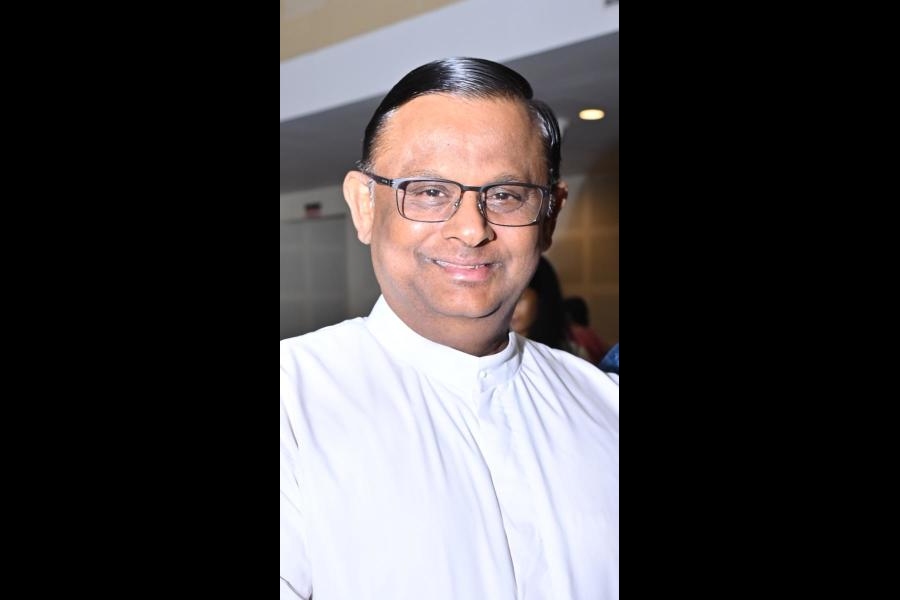When the call for sacred service comes, Lord Almighty has his unique way of stirring a dormant soul. Even if the person pays no heed, ultimately God will have his way to engage the person for his service, especially if it pertains to spreading his love and
compassion.
That’s exactly what happened between God and St Ignatius of Loyola — the Founder of the Society of Jesus. His dream was to become a famous knight of valour and earn name and fame.
But in 1521, when he was 30, while leading the Spanish soldiers against the French in Pamplona, he sustained life-threatening injuries. While recuperating in his castle at Loyola, he wanted to read romances, but he only got access to the Books of Saints and the Life of Christ. This very circumstance led to the transformation of his life.
He decided to become a soldier of God to proclaim His love and concern for all. Deciding to study at the University of Paris, he formed a close-knit group of seven young men who shared his vision and mission to ignite the divinity in all. With his associates, in 1540, he officially founded the Society of Jesus or the Jesuits with the blessing and approval of Pope Paul III in Rome. From this group of his first companions, he sent Francis Xavier to India in 1541, who arrived in Goa in 1542.
In Goa, Francis Xavier founded St Paul’s College in 1543 — the façade of which still remains. Following this, he opened several colleges in western and southern India at a time when access to education was not readily available.
St Ignatius, St Francis Xavier and the early Jesuits realised that education was the most effective way to transform the youth and the society.
Through this magical transformation, Jesuits today have managed to fulfil their vision and mission not only in the educational field but in other ancillary and correlated areas like intellectual, spiritual, social and pastoral services; enhancement of social communication; uplift of the migrants, refugees and other deprived sections; and striving for the preservation of Mother Earth, among several others.
The Jesuits are the first religious group to initiate the operation of schools, colleges and universities as a distinct and principal service.
When Ignatius passed away in 1556, the Jesuits were already operating a network of 74 schools and colleges in Europe, Asia, and Africa. This mission of transformation continues in and through various areas of altruistic service across the world.
But perhaps the greatest service is rendered through engagement in education, which especially strives to provide an inclusive higher education, incorporating the needs of the poverty-stricken and the marginalised sections of society.
Jesuit pedagogical pursuits focus on the requirements of the oppressed and the indigenous people, with the mission of forming men and women for and with others.
As of now, the Jesuits number more than 16,000, working in about 112 countries. The highest number of Jesuits, about 4000 plus, are serving in India, Bangladesh, Sri Lanka and Nepal. With more than 3000 Jesuits, India tops the global scenario, with most Jesuits serving in the field of education, with a very strong stress on higher education.
In India, the Jesuits run over 410 schools and 66 higher education institutions, including five universities, 14 autonomous colleges, 24 affiliated colleges, 11 management institutes, eight BEd colleges, four engineering and two law colleges. Besides non-autonomous colleges, Jesuits also run colleges of theology, philosophy, and research centres.
The Jesuits took a discerning look at various issues at their Biennial Meeting of the IAJU (International Association of Jesuit Universities), held in Bogota, Colombia, in July 2025 with about 300 Jesuits and associates participating from all over the world. The Superior General of the Jesuits, Rev. Fr. Arturo Sosa SJ, accompanied, inspired and encouraged the participants throughout the programme.
In the area of higher education at the global level, the following urgent and interconnected themes were explored: democracy, students’ mental and spiritual health, secularism, artificial intelligence (AI), migration and refugees, and environmental justice.
For higher education in South Asia, the following agenda has been formulated. Collaboration and Networking: To establish a Jesuit Higher Education Association of South Asia (JHEASA) Board, a desk to promote international exposure, implementing JHEASA IAJU (International Association of Jesuit Universities) Fellowship and other correlated forums to facilitate a unified collaboration model. Also planned are specialised task forces to create regional groups to focus and promote global citizenship, sustainability, student well-being and further promotion of democracy. To further enhance Jesuit values, the establishment of zonal training centres in affiliated institutions was envisaged.
The Jesuits take up and respond to the needs and challenges of the post-modern age, when almost everything is changing every day. They are keeping pace with the nascent developments while simultaneously guiding and aiding the students and youth of today to face the challenges and needs of tomorrow. In essence, they are promoting St Ignatius’s vision and values of education that underscored consecrated selfless service, perspicacity, altruism, and spiritual growth of humanity at large.
Author is the principal of St. Xavier’s College (Autonomous), Kolkata










